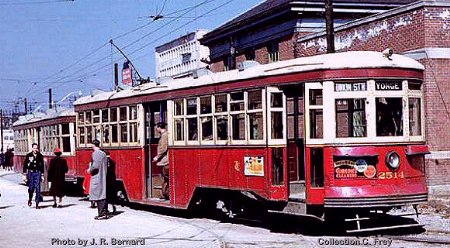TriMet announces new Type 5 MAX vehicle
In response to criticism that it is underfunding its bus system in favor of rail, TriMet has announced plans to cancel a prior solicitation for rolling stock as part of the Portland-Milwaukie project. Instead of purchasing conventional light-rail EMUs (Electric Multiple Units), the agency instead intends to partner with Oregon Iron Works to build a novel bus-rail hybrid, a design it calls a "railbus".
The new vehicles, which will also be known as Type 5 vehicles internally, will consist of articulated electric-powered flatbed cars, with room for one 40' TriMet bus to be parked on each articulated section--two busses per car, or up to four busses in a typical 2-car consist. "Once again, TriMet is a leader in coming up with innovative transit solutions", said general manager Neil McFarlane at an April 1 press conference announcing the new vehicle technology. A picture of the prototype vehicle, taken at the Oregon Iron Works test track in Clackamas, is as follows:

According to TrIMet, once railbus technology matures, it may be possible for this vehicle configuration to support branching, providing both the advantages of rail and of bus rapid transit (BRT). For example, rather than requiring Line 33 passengers to transfer to MAX at Milwaukie, in the future it may be possible for the northbound 33 to simply pull into the Lake Road station, drive onto one of the flatbed sections, and continue its journey to downtown Portland on rails, obviating the need for a transfer.
A few issues remain to be worked out with the technology, which is expected to be ready for the Milwaukie-Portland line's planned 2015 opening. The prototype vehicle is not yet ADA-compliant, as even low-floor busses have boarding height issues when mounted on railcars. And the proposal has drawn some fire with ATU Local 757, which is demanding that each bus which is part of a Type 5 train nonetheless have a driver on board, whereas TriMet insists that one operator per train is sufficient.
Still, the agency has high hopes for the technology. "Just as the Portland Streetcar launched a revolution in urban design last decade, we believe that the Type 5 railbus will continue Portland's leadership".









